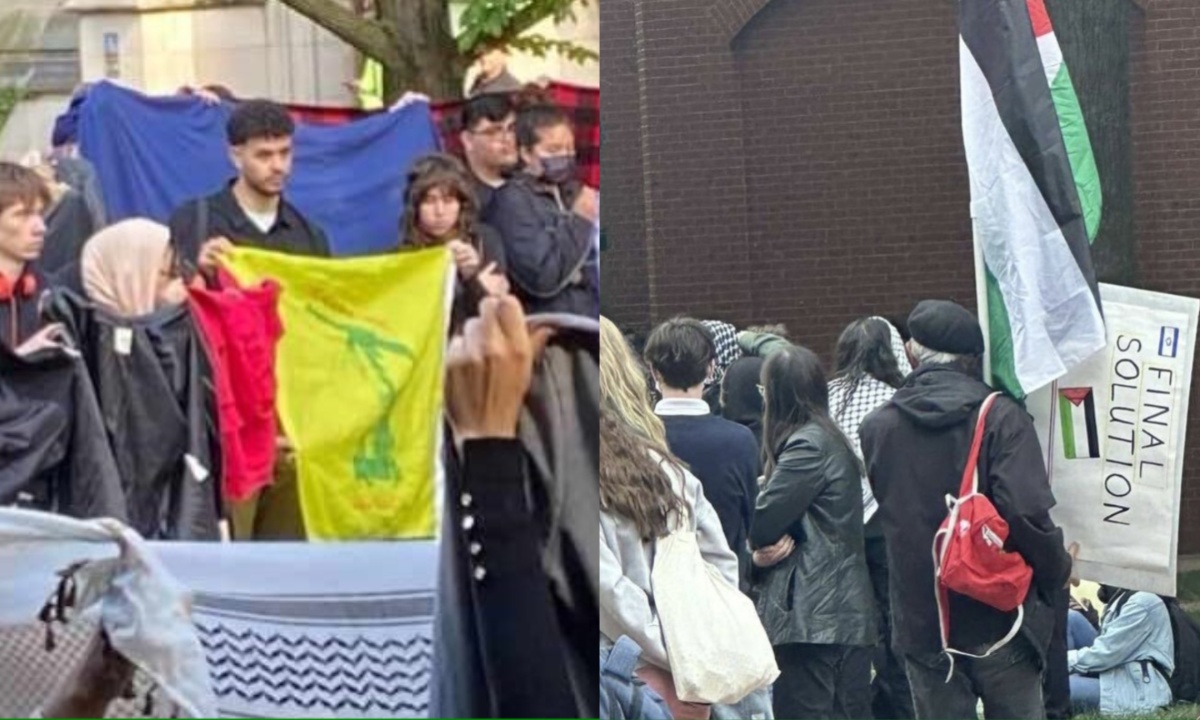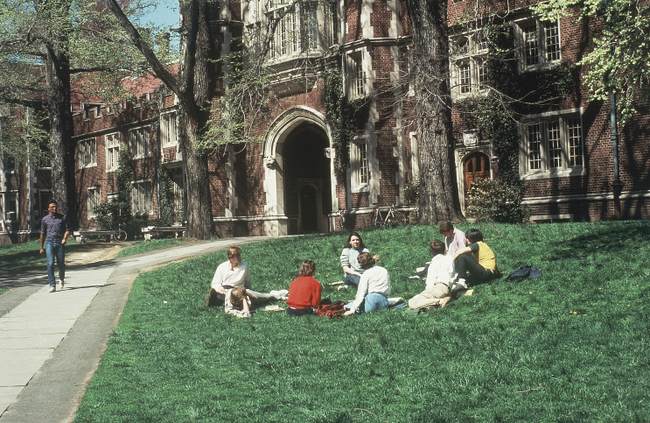Protests at universities in the United States, ostensibly in support of Hamas, have taken a concerning turn, with demonstrators also displaying flags of Hezbollah, another radical Islamic terrorist group. During an anti-Israel demonstration at Princeton University, protesters prominently showcased Hezbollah flags while urging the school to sever ties with Israel. Images of this display circulated widely on social media, sparking condemnation from various quarters.
Critics responded swiftly to the images, highlighting the hypocrisy of protesters purportedly advocating for Hamas while openly endorsing Hezbollah, a group responsible for numerous terrorist attacks worldwide, including against Americans and Jewish communities. The visible support for Hezbollah raises questions about the true motives behind these protests and the ideologies driving them.

Hezbollah, an Iranian-backed organization established in the 1980s, has a long history of hostility towards Israel and has targeted Jews globally. Notable attacks include the 1983 bombing of a Marine barracks in Beirut, killing 299 people, and the 1994 attack on a Jewish community building in Argentina, claiming 85 lives. These acts underscore Hezbollah’s commitment to violence and its status as a significant threat to international security.
The convergence of pro-Hamas sentiment with support for Hezbollah suggests a broader anti-Israel agenda that extends beyond Palestinian advocacy. While ostensibly championing Palestinian rights, protest leaders often remain silent on Hamas’s oppression of Palestinians, indicating a deeper animosity towards Israel as a Jewish state. This alignment with Hezbollah, known for its terrorist activities, further underscores the extremist nature of these demonstrations.
The display of Hezbollah flags at anti-Israel protests on university campuses underscores the complexity of the Israeli-Palestinian conflict and the diverse motivations driving advocacy efforts. While some may genuinely seek to support Palestinian rights, the overt support for terrorist organizations like Hezbollah raises concerns about the underlying agendas and ideologies shaping these protests.


